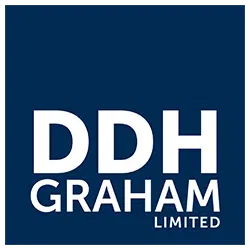UiPath RPA Program
Home \ UiPath RPA Program
Application Development
UiPath RPA Program
Intelligent Pathways partnered with DDH to implement RPA, automating a number of processes across the organisation where manual tasks created time consuming, repetitive work for staff. This has increased value in staff output, reduced administrative burden and ensured low-risk processing.
“As you get more experienced with RPA, it becomes easier and easier. We have had it for about 3 or 4 years now and comparing how much it costs per year and the development costs; I think it more than carries its weight.”
– Glen Kennedy, Technical Business Analyst, DDH Graham
Client Overview
DDH Graham Limited (DDH) offers tailored and flexible funds management and administration solutions to the financial services sector. They work across a range of investment products including deposit accounts, equity funds, cash and fixed rate interest funds, multi sector funds and superannuation.

Engagement Drivers
DDH had a high degree of manual processing and data entry in their environment due to their aged business systems having limited end points or no APIs for integration. They wanted to improve efficiency and reduce the dull, repetitive work their team were doing daily.
Robotic Process Automation (RPA) was determined as the most cost-efficient and effective way to increase the speed and accuracy of consolidating information from multiple systems into one database. DDH wanted to continue partially using Excel reporting but required a significant increase in workflow productivity and a more scalable environment to cater for business growth. UiPath was chosen as the most appropriate RPA solution, as it was proven to be robust enough to manage the complexities of the financial industry.
Solution
DDH Graham engaged Intelligent Pathways as their UiPath RPA implementation partner to develop their processes and provide support and guidance as required. Multiple processes have been automated across the DDH business including:
- Bank Reconciliation – obtains bank and member registry data and then imports them into a data warehouse for reconciliation.
- Custodian Reconciliation – obtains transactions reports from the equity dealing platform and imports those transactions into the investment management platform.
- Obtains member tax records from shareholder registries files and then inserting this data into database tables to enable easier access for the fund accounting team.
- Extraction of member details from the member registry system for integration into a workflow platform.
- Extraction of member investment details for TMD/DDO and corporate action reporting.
- Automation of the process to create investment orders from our superannuation registry system.
Outcomes
DDH has seen a significant reduction in the time taken to process and reconcile key data points with the implementation of RPA. The solution has increased throughput, improved the accuracy of data and reduced administrative burden. RPA has saved hours of routine manual work and improved employee experience, allowing staff to do more valuable work whilst bots do the repetitive, high volume, low-value work. Freed from mundane tasks, staff can oversee any exceptions, and focus on management reporting.
The use of RPA has come with some minor ongoing challenges such as managing the external environment. For example, when a bank changes their website, it often does not come with warning, and the bots are not programmed to operate with the latest updates. However, Glen Kennedy explained
“The small teething issues do not outweigh the invaluable asset to the business processes. Having a responsive partner like Intelligent Pathways helps minimise the impact of these changes when they occur.”